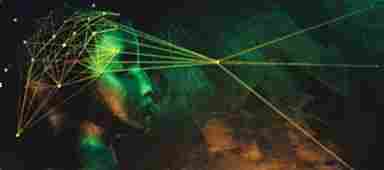Since 2003, the Center for BrainHealth at The University of Texas at Dallas has organized an international symposium, first with The University of Texas Southwestern Medical Center and now with The University of California at Berkeley, to present new discoveries and novel approaches to enhancing brain repair in humans. The Reprogramming the Human Brain Symposium bridges the gap between basic brain research and human clinical treatments for the brain. The fifth annual Reprogramming the Human Brain Symposium will be held from 9 a.m. to 5:00 p.m. March 24, 2011 at the University of California, Berkeley.
This year the Reprogramming the Human Brain Symposium will focus on cognitive control, from bench to bedside, including presentations on the neurochemistry of the adaptive mind, the prefrontal cortex and memory, controlling the contents of our thoughts, the role of reward signals in different prefrontal regions, and cognitive and pharmacological therapies for deficits in cognitive control.
“The goal of the Symposium is to bring together the most pioneering minds in neuroscience from both the research and medical fields to share the latest research and treatment options,” said Dr. Mark D’Esposito of the University of California, Berkeley.
Center for BrainHealth’s Dr. Sandra Bond Chapman will discuss reversing cognitive control deficits in healthy aging and brain injury. Dr. Chapman and her team have been studying the effects of BrainHealth-developed Strategic Memory and Reasoning Training (SMART) in various populations and have found that the program, which focuses on cognitive training in three areas – strategic attention, innovation, and mental flexibility, has positive results regardless of age, injury, or disease.
“What we have been able to see through our research is that not only does the SMART training program have positive effects in the areas of the brain that are targeted, but that there is a measurable spillover effect,” said Dr. Chapman, founder and chief director of the Center for BrainHealth. “Our research has shown that the training improves brain function in areas that are not specifically targeted through the program, thus creating greater benefit in cognitive performance.”
The Symposium has featured some of the most distinguished neuroscientists and medical investigators in the country; this year’s keynote speaker and Charles L. Branch BrainHealth Award recipient will be Joaquin Fuster, M.D., Ph.D., of the University of California, Los Angeles. The Award was created in 2010 to honor neuroscientists who have made tremendous breakthroughs in brain discoveries and are pioneers in the area of brain research. Dr. Joaquin Fuster is one of the leading scientists in the field of cognitive neuroscience. In 1971, he made the seminal discovery of "memory cells" in the frontal lobes and since then has contributed more to our understanding of the frontal lobe function in behavior and cognition than any other individual alive today.
Featured presentations for this year's symposium are as follows:
The Neurochemistry of the Adaptive Mind — Roshan Cools, Ph.D.
Donders Institute for Brain, Cognition, and Behaviour, The Netherlands
Cognitive Out-of-Control with Normal Aging — Adam Gazzaley, M.D., Ph.D.
University of California, San Francisco
Prefrontal Cortex and Memory: Time is of the Essence — Charan Ranganath, Ph.D.
University of California, Davis
Controlling the Contents of Our Thoughts — Brad Postle, Ph.D.
University of Wisconsin, Madison
The Role of Reward Signals in Different Prefrontal Regions — Jonathan Wallis, Ph.D.
University of California, Berkeley
Reversing Cognitive Control Deficits in Healthy Aging and Brain Injury — Sandra Bond Chapman, Ph.D.
Center for BrainHealth, The University of Texas at Dallas
Cognitive and Pharmacological Therapies for Deficits in Cognitive Control — Mark D’Esposito, M.D.
University of California, Berkeley
Keynote Speaker, 2011 Recipient of The Charles L. Branch BrainHealth Award — Joaquin Fuster, M.D., Ph.D.
University of California, Los Angeles




